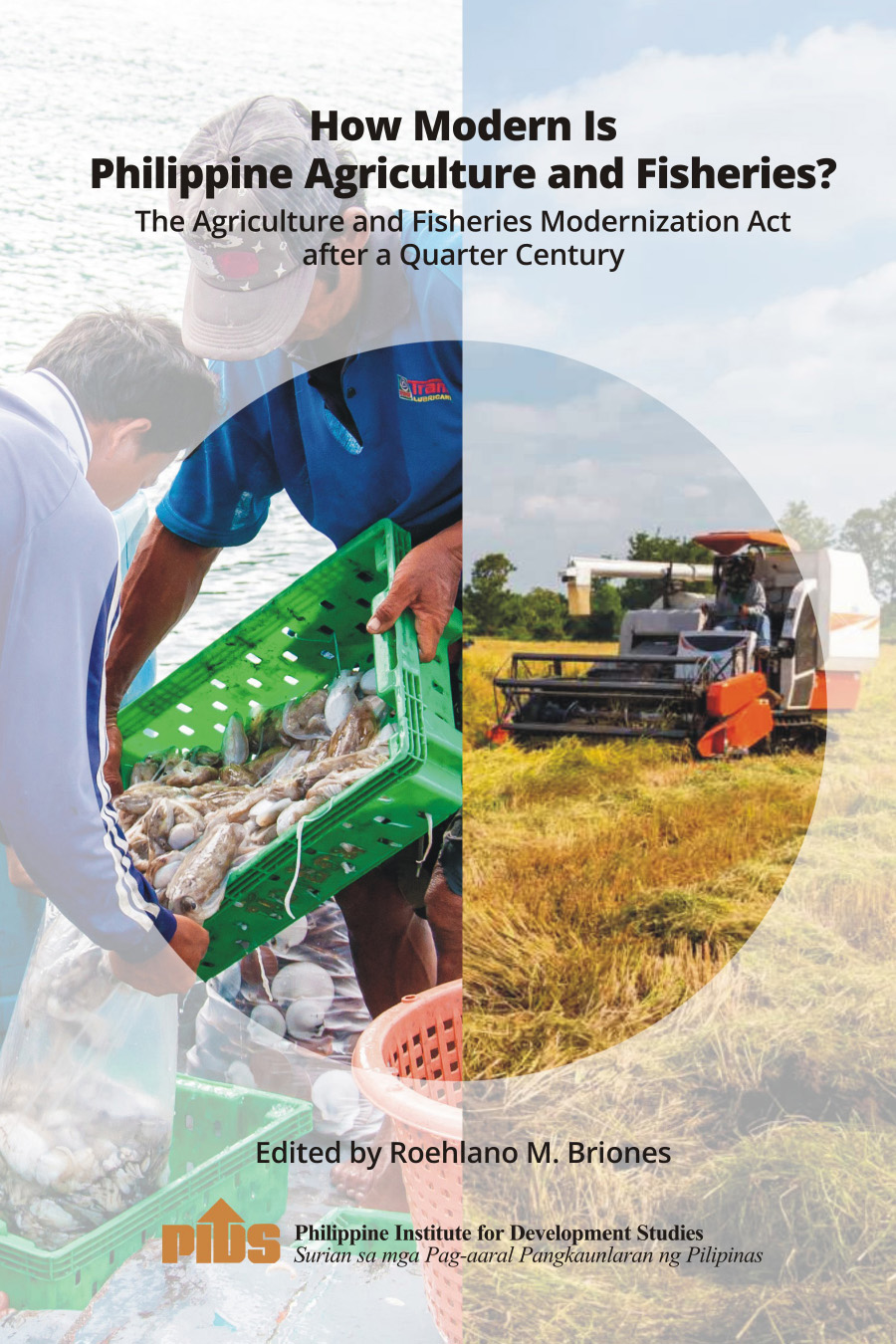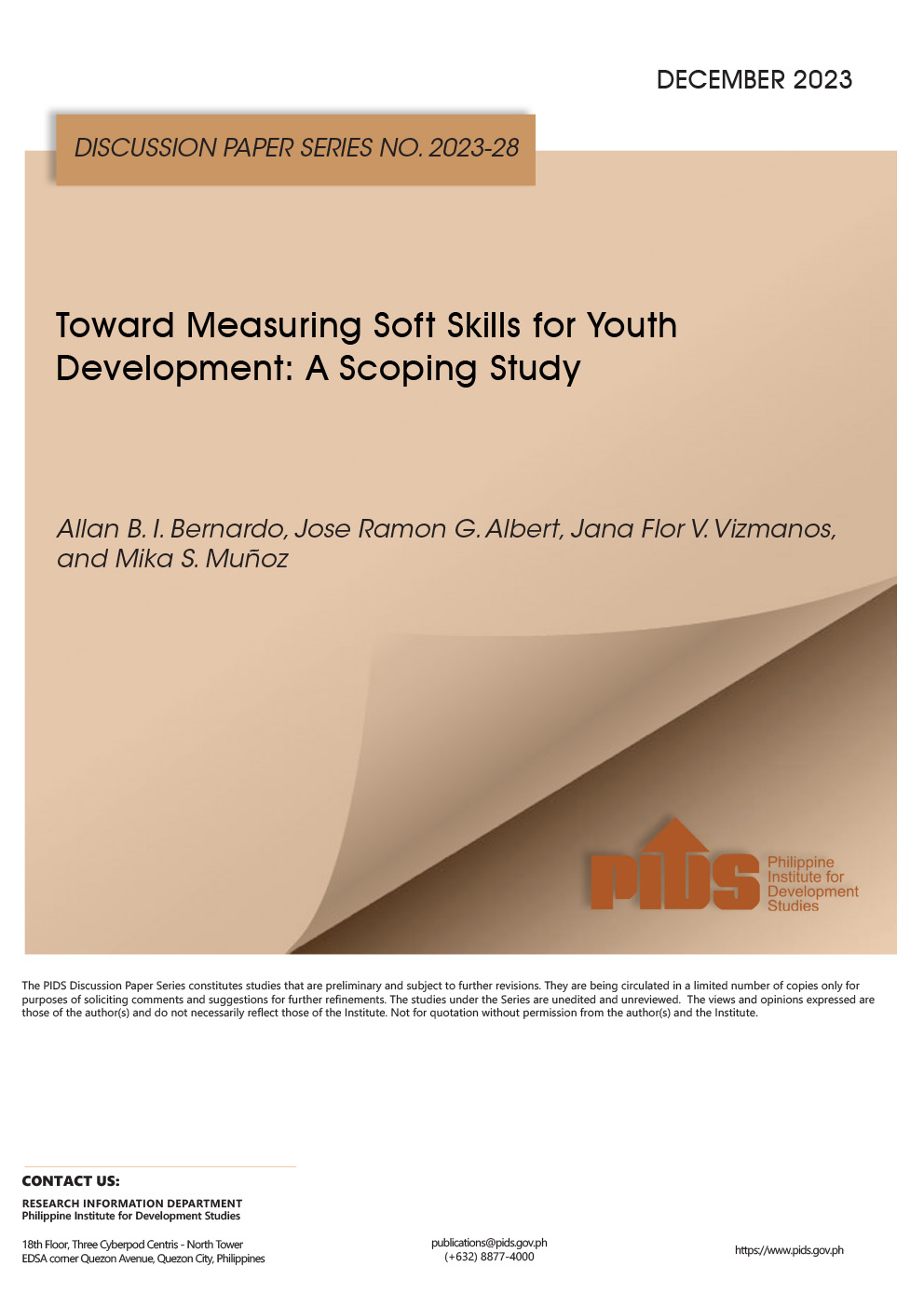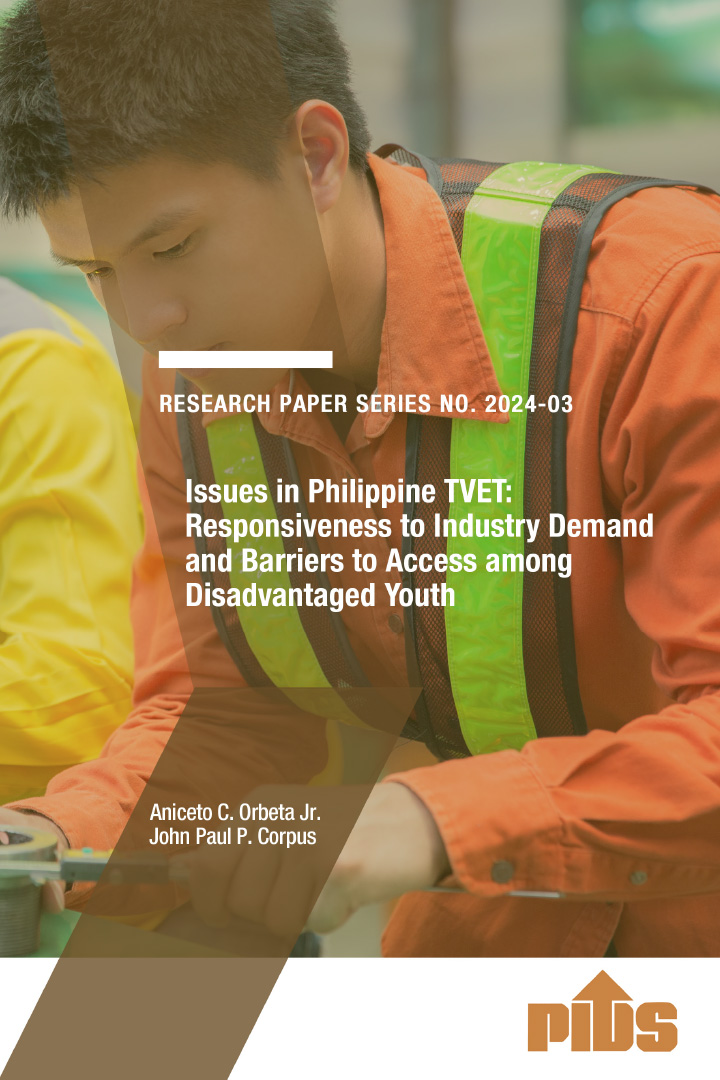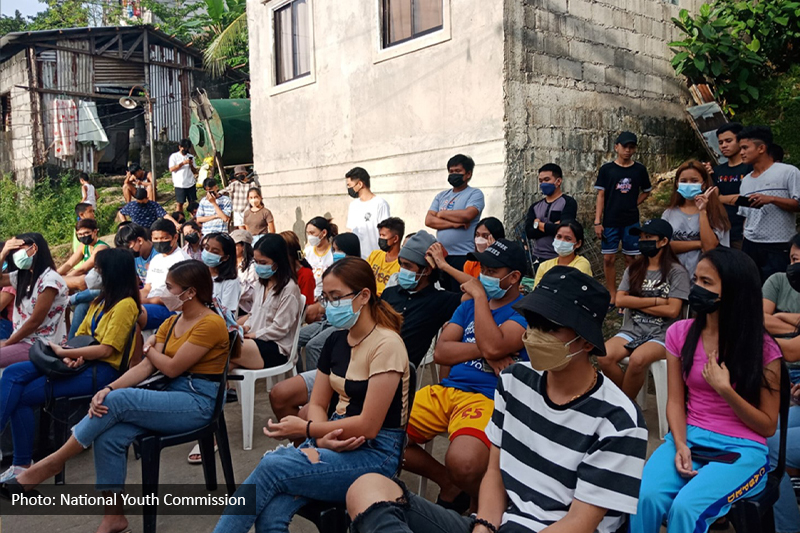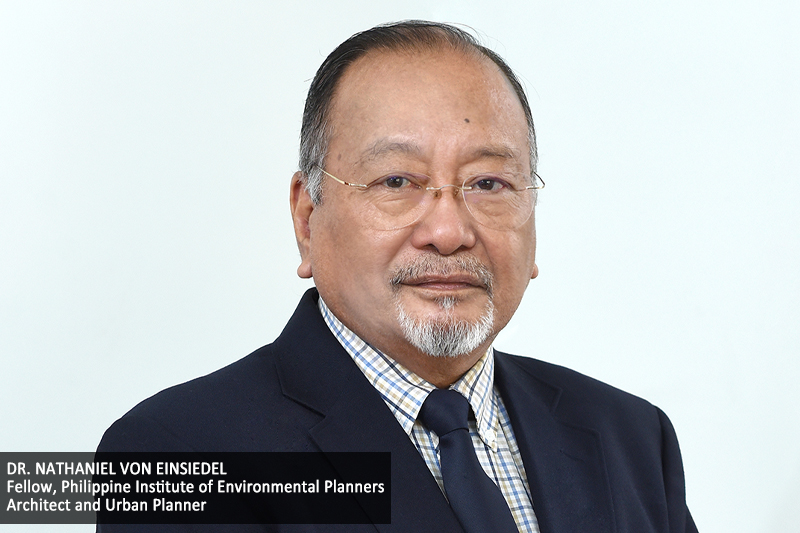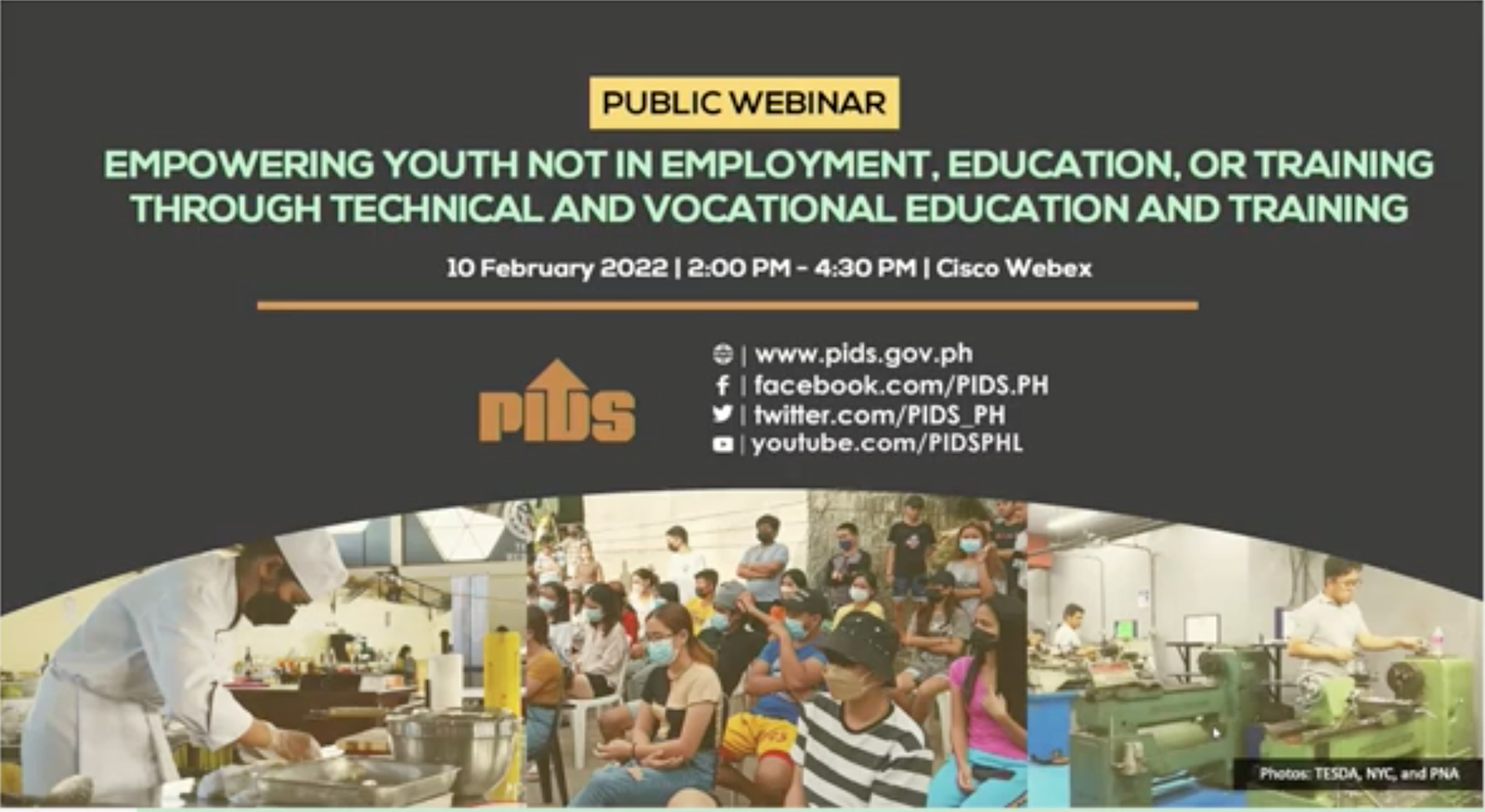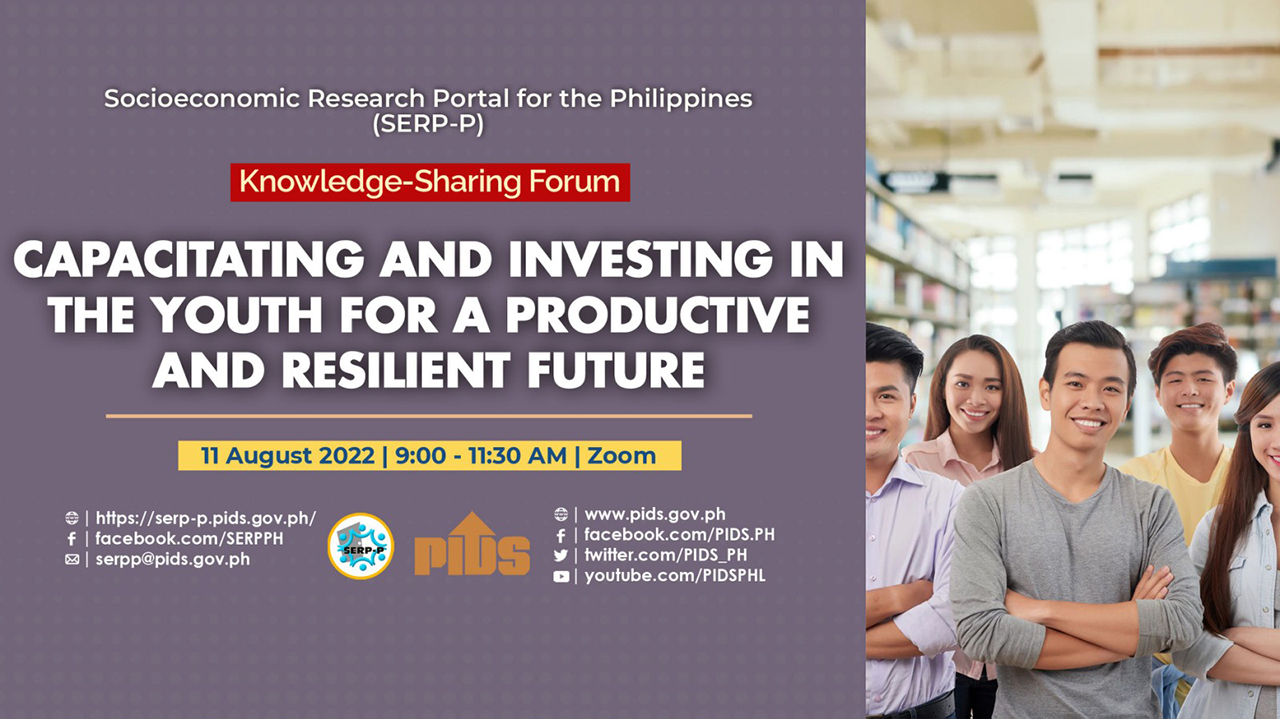Activists called it a victory in terms of mobilization when, in April 2017, poor Filipinos took over thousands of idle government housing units in Pandi, Bulacan.
Through the "Occupy Bulacan" movement, some 6,000 families occupied resettlement areas of the National Housing Authority (NHA) located in the municipality of Pandi. The government had failed to distribute housing units that had been unoccupied for at least 5 years.
"It was not a spontaneous event. It was a successful campaign that gave poor Filipinos homes," recalled youth activist Vinz Simon, 26, in an interview with Rappler on Tuesday, December 8.
"We worked with urban poor organizations and talked with the local government unit. We were there. I was on the ground for almost two months. It was a successful movement that gave victory to poor Filipinos," he added.
Simon, secretary-general of Anakbayan, a national democratic youth-led organization, recounted this as one of his memorable experiences being a youth activist for over 8 years now. He said this particular instance made him decide to focus on being an activist instead of looking for a better paying job.
When it all started
Simon studied political science at De La Salle University. Immediately after his graduation in 2014, he enrolled in DLSU's political science graduate program, but stopped in 2017 so he could focus on helping urban poor families organize themselves.
It was not a "momentous" event in Philippine history that made Simon decide to be an activist. He was first introduced to activism and Anakbayan in the most unexpected way – during drinking sessions with his batchmates in DLSU who founded Anakbayan Vito Cruz.
"I was skeptical of the discussion. I was asking myself, 'Are they telling the truth?' I was looking for the catch. What is this? Is it a terrorist organization? I was very critical. Are they saying factual events? I need to cross-check everything with my class readings," Simon said.
But the organization's involvement in urban poor communities convinced him to join.
Because he was sympathetic to marginalized sectors, Simon quickly understood and appreciated the group's mission of helping unrepresented sectors organize themselves to fight for their rights.
He recalled immersing in a community of farmers fighting for land rights in 2013. Staying there for two days was his "it moment," he said.
"It was formative for me because it affirmed the discussions we had during our drinking sessions back then. There was this 'it moment' that I was able to convince myself about the mission of Anakbayan after months of skepticism," Simon added.
According to a study by the Philippine Institute for Development Studies in 2017, over 4.8 million hectares of private and non-private agricultural land were already given out to around 2.8 million beneficiaries of the Comprehensive Agrarian Reform Program. However, some 600,000 hectares remained undistributed.
Simon's parents were not supportive at first of his decision to be involved in a progressive organization. Of course, the top consideration for them was security.
"Fear is natural, especially if you're facing a fascist regime. In this time and age, I'd just always look over my shoulders. I’d also look around communities we are in, and I’d always find the resolve and strength to move forward," he said.
It's scary, but there are plenty of reasons to continue being an activist.
Vinz Simon, Anakbayan secretary-general
While his parents later on allowed him to be an activist, Simon said that up until now he's still convincing his parents that he will be safe in every protest.
Getting detained
When President Rodrigo Duterte declared martial law in Mindanao on May 23, 2017, Anakbayan saw it as a step toward authoritarianism in the country, Simon said.
During a special joint session of Congress to discuss the extension of martial law in the region, Simon, together with other Anakbayan members, entered Batasang Pambansa to protest the extension.
"They made Mindanao a petri dish for the exercise of military rule," he said.
Simon said the lawmakers were alarmed by what they did and they were detained for 6 nights as a consequence. Their experience inside the jail was frightening, he said, as they were put in a cell with first-degree murderers and con-men.
But Simon said that he didn’t regret protesting inside Batasan because they were able to send their message across.
Martial law in Mindanao lapsed on December 31, 2019.
Gov't war against activists
The Duterte government has charged at least 2,370 human rights defenders since 2016, according to data compiled by rights group Karapatan. (READ: Duterte’s war on dissent)
The group said that 1,831 activists and others, who are not members of progressive organizations but are part of communities defending human rights, have been arrested and detained since July 2016. The remaining 539 were arrested but released after.
These 2,370 people have faced or are facing charges – the consequence of doing human rights work in the Philippines, according to Karapatan.
For many, activism has even cost them their lives: National Democratic Front consultant Randy Malayao, agrarian reform advocate Randy Echanis, human rights activist Zara Alvarez, and, just recently, the daughter of Bayan Muna Representative Eufemia Cullamat, Jevilyn Cullamat.Despite the threats he has been receiving, Simon says he will never quit activism, especially since he still sees inequality and injustice in the country.
"I'm here for the long run because activism in the Philippines needs action and voices," he added.
On calls for academic strike
While Simon has stopped his graduate studies for now, he still joins the nationwide calls for an academic strike. He has coordinated with other youth activists to support their movement.
"The engagement of the Ateneo students was a brilliant idea. They put their privileged access to quality education on the line for these legitimate national issues that need addressing," he said.
Students from Ateneo de Manila University, who launched One Big Strike, called for a nationwide academic strike on November 23 and demanded accountability from the Duterte government for its "criminal negligence" during the recent typhoons and the COVID-19 pandemic.
Simon said that youth-led movements on campuses captured the general sentiments of students who are bearing the brunt of a system unprepared for remote learning and the government's failed policies on education.
'Unified voice'
He also advised student activists to continue listening to the people and serving the disadvantaged. He appealed to them to not make activism "elitist."
"We need more people on board. We need to be more accommodating and inclusive. This needs a unified voice," he said. (READ: The personal is political: Student leaders take their voices to the streets)
Simon said Anakbayan's agenda extends far beyond a call for President Duterte’s ouster. It also calls for national democracy.
"Like elections, mass protests are an expression of the sovereign will of the people. It is consensus-building that tells people that they don't have to wait for 2022 for changes to happen," he said. (READ: How to register to vote in the time of a pandemic) – Rappler.com
Through the "Occupy Bulacan" movement, some 6,000 families occupied resettlement areas of the National Housing Authority (NHA) located in the municipality of Pandi. The government had failed to distribute housing units that had been unoccupied for at least 5 years.
"It was not a spontaneous event. It was a successful campaign that gave poor Filipinos homes," recalled youth activist Vinz Simon, 26, in an interview with Rappler on Tuesday, December 8.
"We worked with urban poor organizations and talked with the local government unit. We were there. I was on the ground for almost two months. It was a successful movement that gave victory to poor Filipinos," he added.
Simon, secretary-general of Anakbayan, a national democratic youth-led organization, recounted this as one of his memorable experiences being a youth activist for over 8 years now. He said this particular instance made him decide to focus on being an activist instead of looking for a better paying job.
When it all started
Simon studied political science at De La Salle University. Immediately after his graduation in 2014, he enrolled in DLSU's political science graduate program, but stopped in 2017 so he could focus on helping urban poor families organize themselves.
It was not a "momentous" event in Philippine history that made Simon decide to be an activist. He was first introduced to activism and Anakbayan in the most unexpected way – during drinking sessions with his batchmates in DLSU who founded Anakbayan Vito Cruz.
"I was skeptical of the discussion. I was asking myself, 'Are they telling the truth?' I was looking for the catch. What is this? Is it a terrorist organization? I was very critical. Are they saying factual events? I need to cross-check everything with my class readings," Simon said.
But the organization's involvement in urban poor communities convinced him to join.
Because he was sympathetic to marginalized sectors, Simon quickly understood and appreciated the group's mission of helping unrepresented sectors organize themselves to fight for their rights.
He recalled immersing in a community of farmers fighting for land rights in 2013. Staying there for two days was his "it moment," he said.
"It was formative for me because it affirmed the discussions we had during our drinking sessions back then. There was this 'it moment' that I was able to convince myself about the mission of Anakbayan after months of skepticism," Simon added.
According to a study by the Philippine Institute for Development Studies in 2017, over 4.8 million hectares of private and non-private agricultural land were already given out to around 2.8 million beneficiaries of the Comprehensive Agrarian Reform Program. However, some 600,000 hectares remained undistributed.
Simon's parents were not supportive at first of his decision to be involved in a progressive organization. Of course, the top consideration for them was security.
"Fear is natural, especially if you're facing a fascist regime. In this time and age, I'd just always look over my shoulders. I’d also look around communities we are in, and I’d always find the resolve and strength to move forward," he said.
It's scary, but there are plenty of reasons to continue being an activist.
Vinz Simon, Anakbayan secretary-general
While his parents later on allowed him to be an activist, Simon said that up until now he's still convincing his parents that he will be safe in every protest.
Getting detained
When President Rodrigo Duterte declared martial law in Mindanao on May 23, 2017, Anakbayan saw it as a step toward authoritarianism in the country, Simon said.
During a special joint session of Congress to discuss the extension of martial law in the region, Simon, together with other Anakbayan members, entered Batasang Pambansa to protest the extension.
"They made Mindanao a petri dish for the exercise of military rule," he said.
Simon said the lawmakers were alarmed by what they did and they were detained for 6 nights as a consequence. Their experience inside the jail was frightening, he said, as they were put in a cell with first-degree murderers and con-men.
But Simon said that he didn’t regret protesting inside Batasan because they were able to send their message across.
Martial law in Mindanao lapsed on December 31, 2019.
Gov't war against activists
The Duterte government has charged at least 2,370 human rights defenders since 2016, according to data compiled by rights group Karapatan. (READ: Duterte’s war on dissent)
The group said that 1,831 activists and others, who are not members of progressive organizations but are part of communities defending human rights, have been arrested and detained since July 2016. The remaining 539 were arrested but released after.
These 2,370 people have faced or are facing charges – the consequence of doing human rights work in the Philippines, according to Karapatan.
For many, activism has even cost them their lives: National Democratic Front consultant Randy Malayao, agrarian reform advocate Randy Echanis, human rights activist Zara Alvarez, and, just recently, the daughter of Bayan Muna Representative Eufemia Cullamat, Jevilyn Cullamat.Despite the threats he has been receiving, Simon says he will never quit activism, especially since he still sees inequality and injustice in the country.
"I'm here for the long run because activism in the Philippines needs action and voices," he added.
On calls for academic strike
While Simon has stopped his graduate studies for now, he still joins the nationwide calls for an academic strike. He has coordinated with other youth activists to support their movement.
"The engagement of the Ateneo students was a brilliant idea. They put their privileged access to quality education on the line for these legitimate national issues that need addressing," he said.
Students from Ateneo de Manila University, who launched One Big Strike, called for a nationwide academic strike on November 23 and demanded accountability from the Duterte government for its "criminal negligence" during the recent typhoons and the COVID-19 pandemic.
Simon said that youth-led movements on campuses captured the general sentiments of students who are bearing the brunt of a system unprepared for remote learning and the government's failed policies on education.
'Unified voice'
He also advised student activists to continue listening to the people and serving the disadvantaged. He appealed to them to not make activism "elitist."
"We need more people on board. We need to be more accommodating and inclusive. This needs a unified voice," he said. (READ: The personal is political: Student leaders take their voices to the streets)
Simon said Anakbayan's agenda extends far beyond a call for President Duterte’s ouster. It also calls for national democracy.
"Like elections, mass protests are an expression of the sovereign will of the people. It is consensus-building that tells people that they don't have to wait for 2022 for changes to happen," he said. (READ: How to register to vote in the time of a pandemic) – Rappler.com

